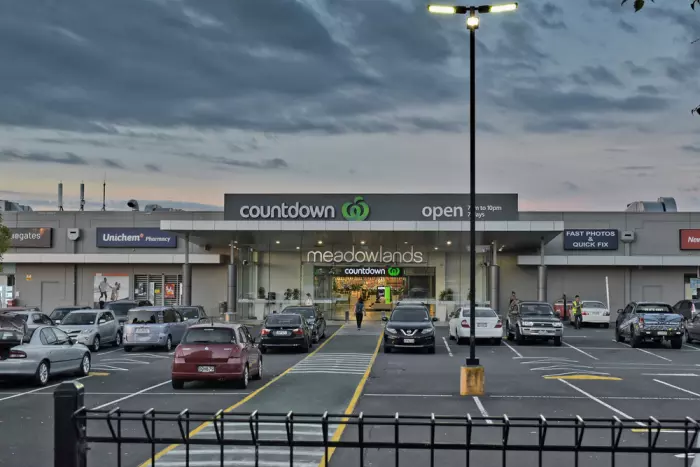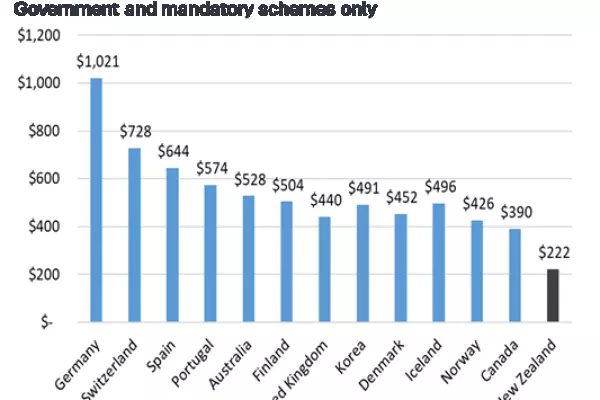A group of independent pharmacies have gone to court claiming health authorities got the law wrong in letting Countdown run pharmacies and dispense prescriptions.
New Zealand Independent Community Pharmacy Group (ICPG) is seeking a review in the high court at Wellington of decisions granting pharmacy licences to Countdown in Gisborne and Wainuiomata in Hutt City.
The group argued that the Countdown pharmacies are not under the full control of its pharmacists as required by law and that the company was running a loss-leading strategy to drum up business.
The ICPG said the decision-making processes were flawed because they were made with insufficient evidence, and there was no rational connection between the evidence that was available and the decisions made.
Not commercial interest
It also filed documents – entirely redacted when released to BusinessDesk – claiming that Gisborne’s former district health board (DHB) had failed to monitor the performance of the local Countdown pharmacy.
The group denied its case is motivated by commercial interest. The respondents are the former Hutt Valley DHB (HVDHB), Gisborne’s former DHB Hauora Tairāwhiti, the Ministry of Health and the company operating Countdown Pharmacy.
In 2019, Countdown applied for an Integrated Community Pharmacy Services Agreement (ICPSA) in Wainuiomata from the HVDHB. The group applied for a similar licence in Gisborne the following year.
Lawyer Robert Kirkness said the two former DHBs made a number of errors in law when deciding to grant contracts to Countdown pharmacies.
Kirkness said while pharmacies might have commercial interests, that was not the primary role of pharmacists in NZ, nor the driving force in the ICPG seeking the review.
"It is not an attempt to protect commercial interests but to protect the quality of care to the New Zealand public," he said.
Effective Control
The ICPG wanted to test whether the DHBs and the Ministry of Health carried out their functions with the rigour required by law, he said.
The key argument revolved around whether pharmacists had “effective control” of the Countdown pharmacies' businesses as required by the Medicine Act.
According to the act, only pharmacists can own a controlling share in a pharmacy. Kirkness said that meant owning more than 50% of a pharmacy and being able to make the decisions.
“We haven’t moved to a world where anyone can own a pharmacy,” he said.
“Parliament considered that would enhance public safety. The converse of that is it is significant in our submission is that the other director should not have control,” Kirkness said.
Countdown Pharmacy had two directors – one a pharmacist and one a corporate director with equal decision-making powers. All decisions had to be unanimous.
The Ministry of Health had made an error of law because although pharmacists had a 50% share in Countdown Pharmacies, they could be blocked by the other director, Kirkness said.
The government had taken a view that “negative control” was sufficient, in that the pharmacist could also block the decisions of non-pharmacist shareholders.
The independent pharmacists' case was that negative control was not the same as effective control, Kirkness said. The fact that the ministry had been applying this interpretation consistently should be given no weight, only whether it was the right one.
Loss Leading Strategy
Another bone of contention was Countdown's policy of paying the $5 charged by the government for most prescriptions.
Court documents filed by the ICPG claimed that Countdown was doing that as a loss-leading strategy to attract business.
"The HVDHB ... failed to identify the co-payment discount as a commercial loss-leading strategy and instead proceeded as if Countdown Pharmacy was benevolently removing fees in the public interest."
Countdown had shut down two other Hutt Valley pharmacies for eight months so it could keep its contractual commitment to longer opening hours at its Wainuiomata pharmacy, creating disruption and uncertainty for patients, the group submitted.
Kirkness said the DHBs had failed to identify that Countdown Pharmacy's proposal to subsidise fees was a commercial strategy, Kirkness said.
"If you fail to identify it as a commercial strategy, do you understand the risks and impact on the public and others in the sector?"
Justice Cheryl Gwyn said one issue was whether the DHBs missed the implication of that, or saw it and decided to award the contracts to Countdown Pharmacy anyway.
She later asked whether Countdown’s motivation for the discounts mattered if there was a good outcome.
Kirkness said the issue was the decision-making process.
“There could be a good outcome but you would have to assess that and know. It wasn't done here.”
Court documents from the ICPG stated that although the two DHBs had suggested that Countdown’s prescription charge offered would be beneficial to Māori, neither board made their decision to grant Countdown a pharmaceutical licence in accordance with Treaty of Waitangi principles.
Independents vs discounters
The court heard written evidence from several independent pharmacists.
They expressed concern about the rise of discount pharmacies and a business model they claimed would compromise public safety.
The discounters were relying on full-service pharmacies to provide non-profitable services.
Wainuiomata pharmacist Clive Cannons submitted that he was a healthcare professional before a businessman. His pharmacy, like others, provided services such as free delivery for the community.
The case is continuing and is set down for several days.















